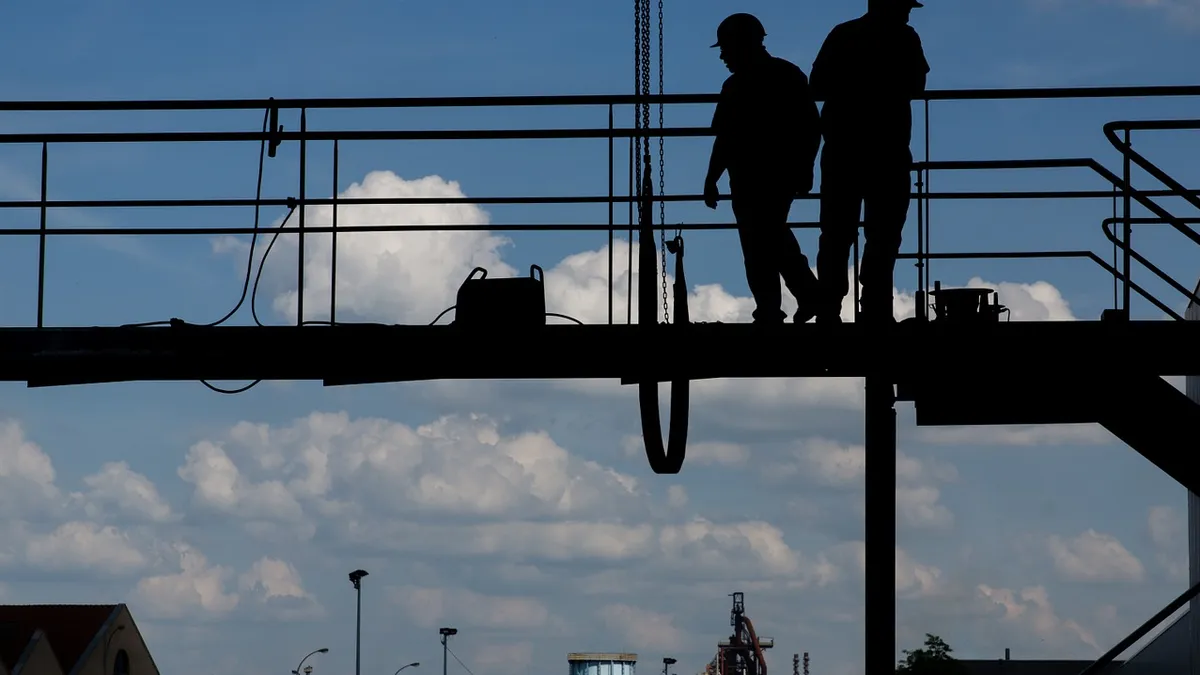Dive Brief:
- Five labor unions, whose efforts are supported by the AFL-CIO, have formed an immigrant worker advocacy coalition, unveiling a nearly $1 million campaign to extend temporary protected status (TPS) for tens of thousands of their members currently living in the U.S. under that designation.
- Working Families United, made up of the International Union of Painters and Allied Trades (IUPAT), UNITE HERE, Bricklayers, United Food and Commercial Workers and the Iron Workers, plan to focus on advertisements and to support legislation introduced by three Democratic senators that would allow some TPS immigrants to apply for permanent residency.
- Terminating TPS and deporting Salvadoran, Honduran, and Haitian workers alone would cost taxpayers $3.1 billion, reduce GDP by $45.2 billion over a decade, decrease Social Security and Medicare contributions by $6.9 billion and increase employer expenses by $967 million, according to the Immigrant Legal Resource Center.
Dive Insight:
Individuals who are already in the U.S. may qualify for the TPS designation if some condition in their home country, such as an armed conflict; a natural, environmental or health disaster; or some other extreme condition, prevents their safe return. While enjoying TPS status, those immigrants are allowed to work legally.
The Department of Homeland Security has determined that Nicaraguans can return home safely, thereby ending their qualification for TPS. The Trump administration has since ended TPS for Nicaraguans and could also end that status for Hondurans within the next six months.
Hispanic workers make up a significant portion of the U.S. construction labor force — 29% in 2016. And in an industry plagued by a severe shortage of skilled labor, those workers have been vital to keeping up firms' employment. But for many of those workers, the Trump administration's targeting of undocumented immigrants and strong push for a border wall along the U.S.-Mexico border has generated a sense of uneasiness.
Before his inauguration, the president campaigned on building a border wall between the U.S. and Mexico. Earlier this year, six contractors were chosen to build eight wall prototypes near San Diego, finishing construction in October. Customs and Border Patrol will not be ready to move on to the next phase of construction for almost a year, but, in the meantime, the agency said it will do further testing on the prototypes.
The Trump administration also faces a lawsuit from California Attorney General Xavier Becerra. The state's case says the federal government wrongly declared itself exempt from California's environmental laws, basing its actions on an expired immigration law.














